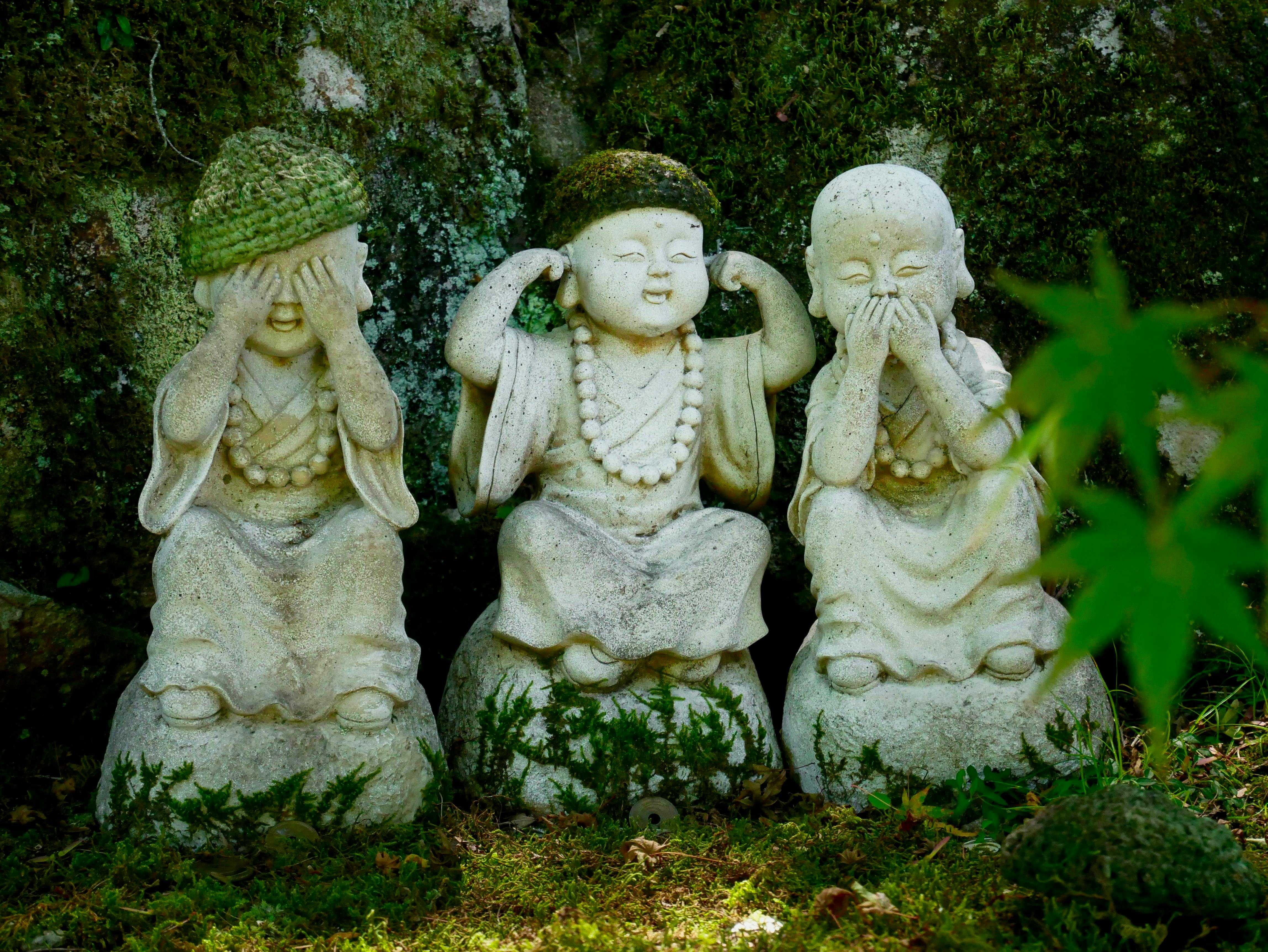Relationships are complex connections that thrive on love, trust, and mutual understanding. However, sometimes couples experience sudden shifts that feel deeper than normal conflicts. Spiritual challenges can subtly or overtly impact the emotional and spiritual harmony between partners.
Recognizing these signs early can empower couples to take meaningful steps towards healing and restoration. This article outlines 11 distinct indicators that your relationship may be under spiritual strain and offers practical guidance to navigate these difficulties.

Photo by Vivien
Frequent Conflicts Affecting Your Emotional Energy
One of the first signs of spiritual interference in a relationship is the rise of constant arguments. These disputes often escalate quickly from minor triggers.
Frequent disagreements drain emotional reserves and leave both partners feeling frustrated and disconnected. It is important to identify whether these arguments are simply differences in opinion or if they seem fueled by deeper unrest.
To counteract this, couples should practice mindful communication techniques, such as pausing before responding and actively listening. This helps reduce tension and fosters understanding despite disagreements.
Recognizing that these conflicts may be influenced by external spiritual pressures allows partners to address not only the surface issues but also the underlying emotional and spiritual currents.
Experiencing Unexpected Anger Around Your Partner
Feeling sudden anger or irritation toward your partner over small matters can indicate a spiritual disturbance. In a healthy relationship, partners typically feel safe and calm with each other.
Unexplained anger disrupts this sense of peace and can cause misunderstandings to multiply rapidly. It is crucial to reflect on the source of these emotions and avoid blaming the partner prematurely.
Engaging in practices such as prayer, meditation, or quiet reflection can help individuals identify and release these negative feelings. This process restores emotional balance and reduces the impact of harmful spiritual influences.
Sudden Changes in How You Feel About Your Partner
A notable shift in feelings is often a red flag in relationships under spiritual strain. Partners who once felt deep affection may suddenly feel detached or indifferent.
This emotional distancing can lead to confusion and pain as the connection seems to weaken without clear cause. Understanding that these changes may be influenced by spiritual forces helps couples approach the situation with compassion rather than blame.
Couples can benefit from shared spiritual practices, such as praying together or attending a spiritual retreat, to rebuild emotional closeness and reignite their bond.
Persistent Negative Thoughts Affecting Your Perspective
When negative thoughts about your partner’s flaws become frequent and overwhelming, it can create insecurity and self-doubt within the relationship.
Continuous criticism, even if only internal, weakens the foundation of trust and appreciation. These thoughts may be a symptom of spiritual attacks aiming to sow discord.
To combat this, it is helpful to practice gratitude exercises focused on your partner’s positive attributes. Reframing your mindset supports emotional resilience and counters the negative narrative.
Decrease in Physical and Emotional Intimacy
A sudden decline in intimacy is a significant indicator of spiritual disruptions in a relationship. Physical affection and emotional closeness often suffer first when spiritual harmony is disturbed.
This decrease can lead to feelings of loneliness and rejection, compounding the problem. Couples should openly discuss their needs and fears related to intimacy to rebuild trust.
Incorporating spiritual activities that promote unity, such as shared prayer or attending counseling with a spiritual focus, can strengthen the bond and restore intimacy.
Growing Resentment That Blocks Forgiveness
Unexpressed anger can build into resentment, creating a barrier to forgiveness and healing. This emotional buildup is often exploited by spiritual forces to keep couples divided.
Addressing resentment requires intentional effort to communicate grievances calmly and honestly. Holding onto past hurts only strengthens negative spiritual influences.
Developing a habit of forgiveness, even in small daily interactions, helps dissolve resentment and fosters a healthier emotional environment.
Trusting Your Inner Feelings About the Relationship
A persistent gut feeling that something is wrong can be a vital warning sign. This inner sense often arises from spiritual sensitivity to disruptions in the relationship.
Instead of ignoring these feelings, partners should explore their origins through prayer, journaling, or spiritual counseling. This awareness provides guidance on steps needed to protect and nurture the relationship.
Validating your instincts helps prevent problems from escalating and encourages proactive healing.
Noticing the Relationship Has Lost Its Spark
The loss of excitement and connection between partners often signifies spiritual interference. When the relationship feels different and lacks its previous warmth, it can create emotional distance.
Couples can reignite their spark by intentionally spending quality time together, free from distractions, and focusing on shared goals and values.
Incorporating spiritual practices into daily life strengthens emotional bonds and fosters a renewed sense of unity.
Challenges in Open and Honest Communication
When communication becomes difficult, misunderstandings multiply and resentment grows. Spiritual attacks often disrupt the flow of honest dialogue between partners.
To improve communication, couples should establish safe spaces for sharing feelings without judgment. Active listening and asking clarifying questions promote empathy.
Seeking guidance from trusted mentors or counselors with spiritual insight can provide valuable tools for restoring healthy communication patterns.
Feeling Emotionally Distant Despite Being Physically Close
Emotional detachment can occur even when partners spend time together physically. This lack of empathy and deeper connection signals spiritual disruption.
Couples should prioritize emotional check-ins and express appreciation regularly to rebuild closeness. Recognizing and validating each other’s feelings strengthens emotional intimacy.
Engaging in joint spiritual practices, such as meditation or reading spiritual texts together, enhances mutual understanding and connection.

Photo by Lucas Andrade
Experiencing Emotional Exhaustion After Interactions
Feeling drained after spending time with your partner can indicate spiritual strain on the relationship. Emotional exhaustion reduces the desire to engage and deepens disconnection.
It is important to set boundaries and ensure both partners have time for individual self-care and spiritual renewal.
Couples may also benefit from counseling or spiritual guidance to address underlying issues and restore emotional energy.
Turning to God for Strength and Guidance
Seeking divine help is a foundational step when facing spiritual challenges in a relationship. Prayer invites strength, clarity, and healing.
Consistent prayer for the relationship creates an environment where healing can begin. It also fosters humility and openness to change.
Encouraging both partners to engage in prayer promotes unity and invites positive spiritual influence.
Building a Stronger Spiritual Bond Together
Strengthening your spiritual connection as a couple helps protect the relationship from negative forces.
Shared spiritual activities such as attending church, studying scriptures, or praying together deepen intimacy and foster mutual support.
Investing time in nurturing this spiritual bond creates resilience and a shared foundation of faith.
Engaging in Open and Compassionate Conversations
Honest dialogue is crucial for overcoming spiritual challenges. Couples need to create space for vulnerability and empathy.
Practicing calm and compassionate communication allows partners to express fears and hopes without judgment.
These conversations build trust and lay the groundwork for collaborative problem-solving.
Seeking Help from Trusted Sources
Reaching out to family, friends, or spiritual advisors offers fresh perspectives and support.
External guidance can illuminate blind spots and provide encouragement during difficult times.
Choosing trusted confidants who respect your values ensures helpful and constructive advice.
Practicing Forgiveness to Heal and Move Forward
Letting go of resentment is essential for spiritual and relational restoration. Forgiveness removes barriers that hinder love and healing.
This requires intentional choices to release anger and embrace compassion.
Regularly practicing forgiveness nurtures peace and strengthens the relationship’s resilience against future challenges.

Photo by Marek Piwnicki
Engaging Example of Spiritual Challenges in a Relationship
Sarah and Michael had been married for five years when they suddenly found themselves arguing over trivial matters daily. Sarah felt a growing sense of anger and distance that confused her because their relationship had been strong.
They decided to seek spiritual counseling and began praying together regularly. Through this process, they realized that unspoken resentments and external pressures were affecting their connection. By openly sharing their feelings and forgiving past hurts, they gradually restored the warmth and intimacy in their marriage.
Now, Sarah and Michael emphasize spiritual practices as a core part of their relationship maintenance, which has helped them navigate future challenges with greater strength and unity.
Relatable Story of Overcoming Spiritual Attacks in Partnership
James noticed he felt emotionally drained after spending time with his partner, Emily, which was unusual for them. Communication became strained, and both felt the spark fading.
After discussing their experiences, they committed to attending a couples’ retreat focused on spiritual growth. There, they learned practical tools to improve communication and deepen their spiritual connection.
The retreat provided a supportive environment where they could address underlying issues without judgment. Returning home, they continued these practices and noticed a significant improvement in their relationship quality and emotional closeness.
James and Emily’s story highlights the power of intentional spiritual engagement and external support in overcoming relational difficulties.


